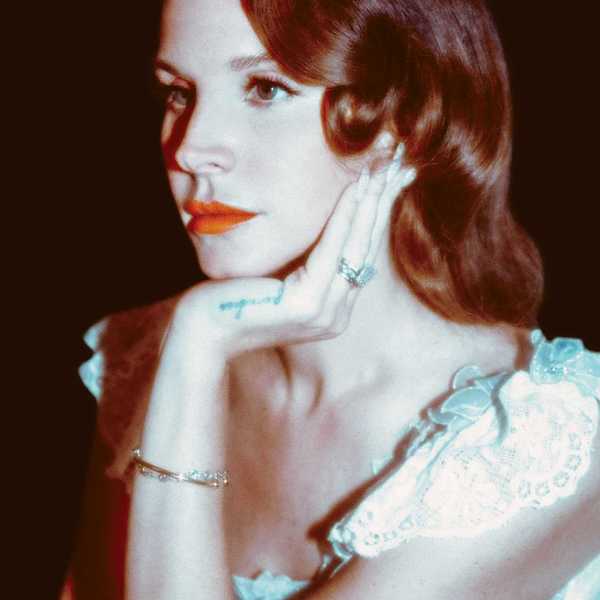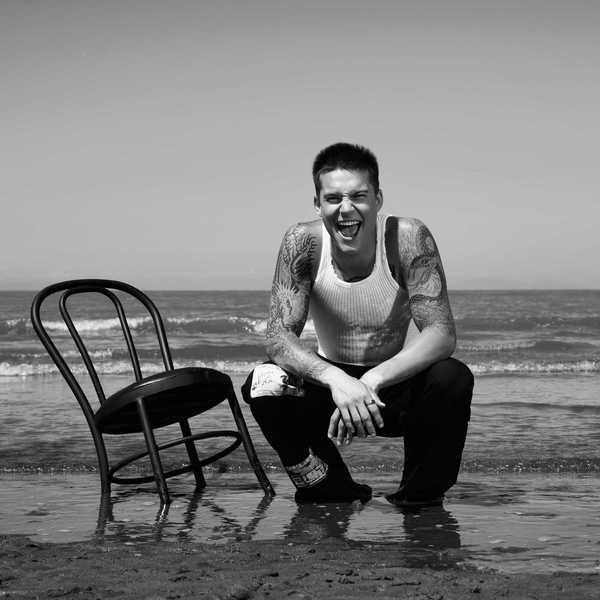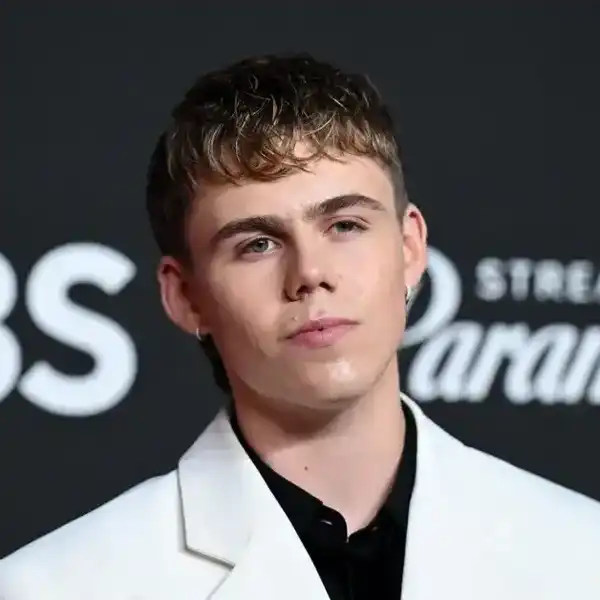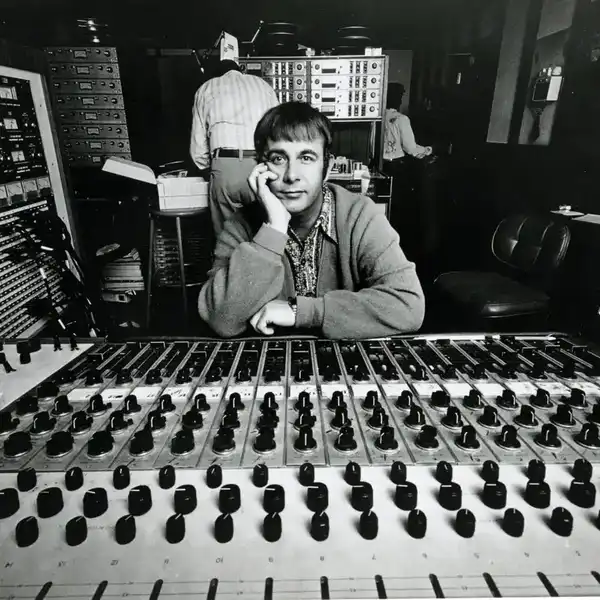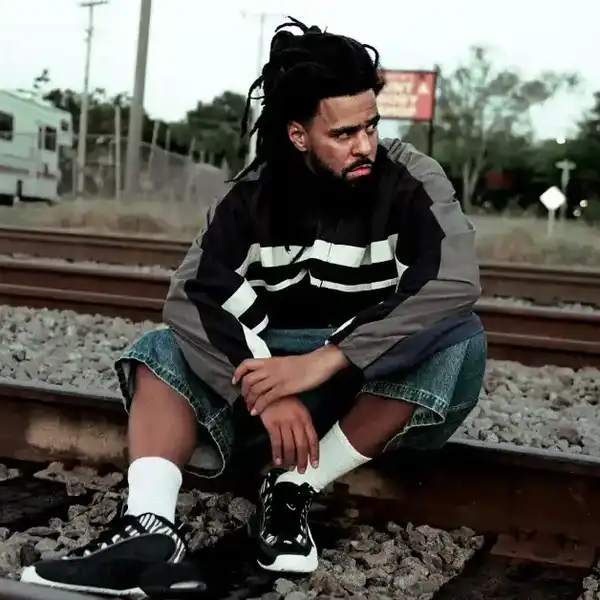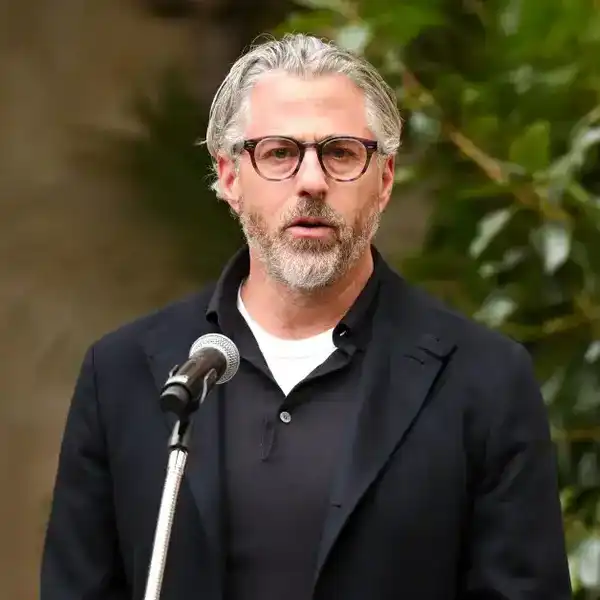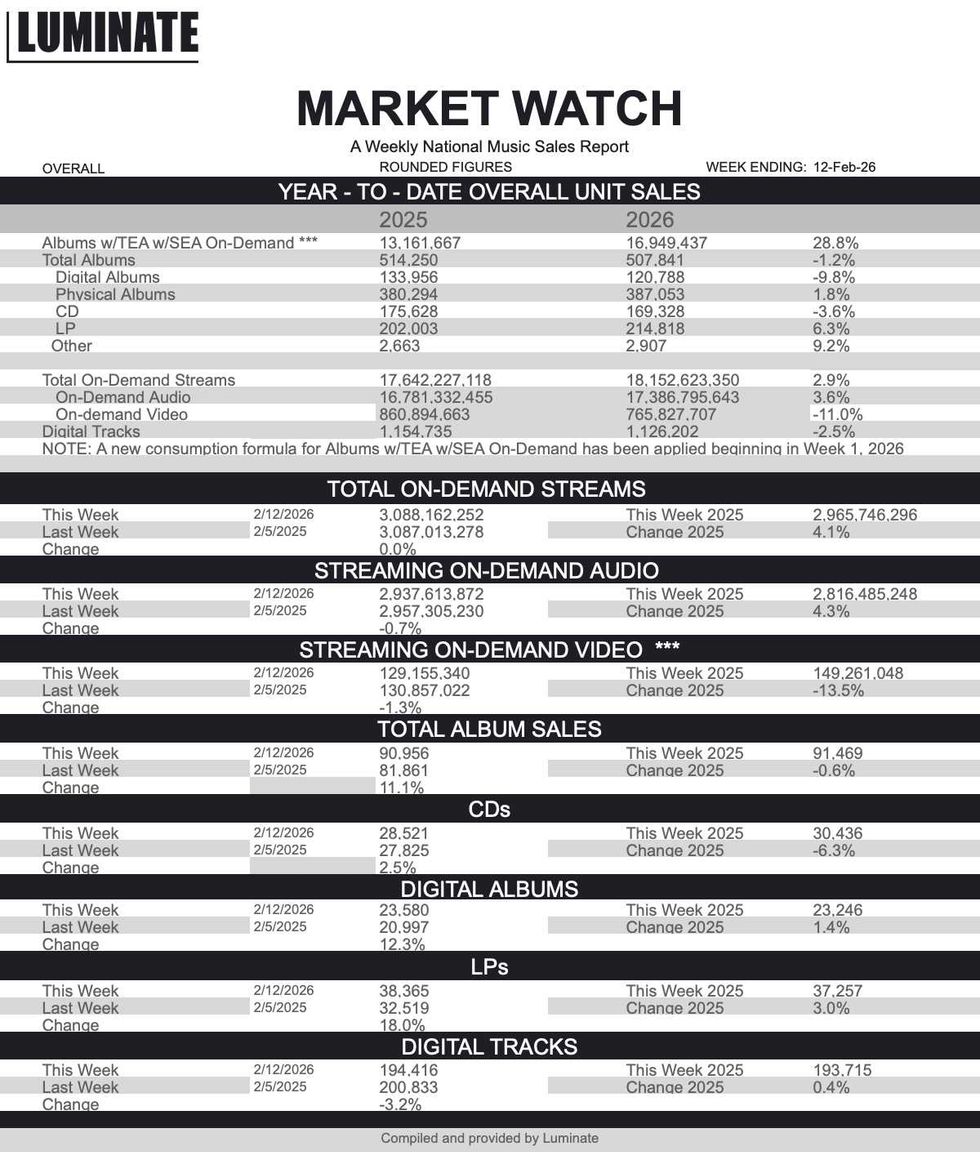A Conversation With ... James Campbell
After fronting Toronto rock bands, this popular Canadian music veteran switched to the business side, first in A&R, then marketing and promotion. Through stints at WEA and BMG, in both Toronto and NYC, he boosted the careers of dozens of acts, and he now continues that role at Slaight Music. Read more in Bill King’s profile.

By Bill King
Today’s interview has been in waiting for a solid fifty years. That is how far back Jim and I go. The early days of Nimbus 9, Jack Richardson, Bob Ezrin, Gary Muth and Al Macmillan. The Hazelton Avenue headquarters a stopover where bands, musicians and industry heavyweights rubbed shoulders.
Jim was in a band called Cat, me, Homestead. Each band with singles – me, Anthem (We the People) Cat – We’re All In This Together. It was Jim’s voice that caught my attention. A singing voice of the times with the same purity and purpose as any of the major pop voices pushing hits up the charts. I was able to enlist Jim to remake We the People with guitarist Danny McBride on guitar, a far better vocal interpretation than my original. It was a time of universal unrest and protest much like this moment and the three of us hoped this version would find traction. Then cross border politics came into play.
The next time I see Jim he is on the other side of the counter – now apprenticing with the opposition – the business of music. From there the occasional meet and greet at industry functions, then in the not so distant past behind a desk at Slaight Music, guiding, counselling, and working with young gifted artists. It’s a bit overwhelming at times to greet a friend who was at the starting gate, us in our early twenties and feel that same level of comfort and excitement with that person and shared passion, music!
Bill King: Can you roll back in time and remember the moment you crossed over from being a performing musician to the business of music? What prompted that decision?
Jim Campbell: I came home from Captain Audio Studio on Hazelton Ave. after doing a vacuum cleaner spot for Ben McPeek (Let Lewyt do it and keep your house clean!). I was pretty fresh out of the band so was also doing some roofing with a friend’s company. That night I got a call from Gary Muth, whom I knew from his days at Nimbus. Gary had first moved on to assistant A&R under John Williams at CBS and just that day had been hired as head of A&R for WEA. After hello, the first words out of Gary’s mouth were simply, “Do you want to work in the music business?”... I said yes, accepting the same gig he’d had with Williams.
B.K: We all have music heroes, yet was there a person or situation from the business arena you found equally exciting?
J.C: One of the most exciting things to happen to me in the business was meeting, working with and becoming a close friend to Bob Jamieson. Bob’s the best team builder I’ve ever met. He allowed all his senior executives to manage their teams while providing valuable input and mentoring at all levels. We had a work hard/play hard/have fun and make your numbers philosophy that took BMG Music Canada to previously unheard-of profitability and unprecedented domestic artist success at home and internationally.
B.K: Where did you grow up and what was young Jim up too?
J.C: I was born in midtown, Lawrence Park area, but moved to Willowdale off Lord Seaton Rd (Yonge and 401 behind the pointy church!) at the age of 2. Went to Fairmeadow Public School with Robbie Lane and Bruce Palmer (Buffalo Springfield.) One of my friends was Bruce’s brother Robert and Bruce and his buddies would prank me, call my home at night and pretend they were the cops and that Robert and I were in BIG trouble! Both Robbie and Bruce were a couple years older and eventually formed local bands. It probably piqued my interest initially, though I mostly just played sports, hockey and baseball, hung with my friends and actually stayed out of trouble. Once I got to high School (York Mills Collegiate) everything changed and music quickly became the focus.
B.K: As a singer was there an artist you patterned your vocal sound after?
J.C: Not really. At first, I was too busy trying to sound like everyone else, being that we hadn’t started writing songs. I guess if there was anyone from whom I might have tried to lift certain vocal characteristics it would have been Don Henley.
B.K: What were some of the first bands and experiences?
J.C: My first band was called The Dropouts and featured a guitar player named Dennis Pendrith (Bruce, Murray and so many others) who eventually lost the flip of a coin with our other two guitarists and had to switch to bass...the rest is history! :-) We soon splintered into two bands, blending our (what we thought) immense talents with other Willowdale players. Peter Shields (Simon Caine) and I joined the Spasstiks while Dennis, John Savage and Bill Palmer (all eventual Simon Caine members) formed a new band called The Cobblers. The Spasstiks recorded one single, Love’s Got a Hold on Me and we won a fan write-in contest on 1050 CHUM to open for Herman’s Hermits and The Animals at the old Maple Leaf Stadium. The Spasstiks eventually splintered again and merged with another Willowdale band called The Cynics. Gary O’Connor (Gary O) joined our side and we became The Cat and then just Cat. We just could not come up with a better name!
We were writing melodic pop/rock and got signed to Nimbus and RCA US. We made a record in Chicago at RCA Mid America Studios with Jack Richardson producing and Bob Ezrin being mentored by Jack and playing some keys with us on what would be our most successful single called We’re All in This Together. We recorded four more sides, this time with Bob producing and eventually broke up, but not before a short side project for Al Mair at Attic, refreshing Attic’s publishing catalogue with a CanCon version of a couple of Marmalade hits under the band name Fast Eddy. The last band I was in was with...you! I don’t believe we ever had a name because it was a short-lived thing, but we were supposed to be the next Toronto supergroup, weren’t we? Great players and songs.! You and me, Danny McBride on guitar, Brad Campbell on bass and Brian Hilton on drums. We signed with Ross Reynolds and GRT, went out to lunch and then broke up!!
B.K: What company did you first land with and in what capacity?
J.C: WEA Music of Canada. I was the A&R Assistant under Gary Muth. It was a tough go for both of us as the company was not domestic artist-friendly at that point.
B.K: Can you remember your first assignment?
J.C: My first assignment was essentially my everyday assignment. Listen to and screen demo submissions and bring the best of them to Gary for review. We had a great set up...an A&R House on Scollard St in Yorkville. Just Gary, myself, and our trusted assistant Arlene Blackley. Artists loved coming there because it was so much more relaxed than the head office on Birchmount.
B.K: The Canadian scene was new and very raw. What were the most difficult obstacles and successes?
J.C: Getting anything past our president at the time! He loved that WEA represented arguably the three most powerful and plentiful labels in the business and we were continually setting sales records year over year. It made him very reluctant to make more than a token commitment to domestic signings. The first taste of success for us as a new A&R dept was Ray Materick. Neon Rain had a big Canadian hit out of the box called Linda Put the Coffee On and I got to stretch a little bit, arranging and singing all the BG’s for that song along with the Murphy sisters from Winnipeg. Our other signings included a group called Diamondback featuring Mike McKenna and Scott Cushnie, but it didn’t connect. Our next signing was Christopher Ward and I was fortunate to co-produce his first single with Gene Martynec. Lost in a Love Song launched Christopher’s career. Streetheart was our most successful signing. Gary spearheaded that project to consecutive platinum albums.
I took over the A&R dept in late 79 and signed David Roberts a young singer/songwriter with immense talent and we made an album called All Dressed Up with the members of Toto and Jay Graydon executive producing with his protégé Greg Mathieson. The songs were A list top to bottom, but one Canadian hit, Boys of Autumn, is all we got.
B.K: How did your focus shift from A&R to promotion, Marketing, Domestic Artist Development and finally International.
J.C: Before I took over the A&R dept when Gary Muth left the company, I had been working in Promotion and Artist relations for Larry Green. There just wasn’t enough A&R activity to justify two of us and I wanted to learn the business so it was a good opportunity. I had some great partners in crime during my days as a promo guy. Peter Taylor, Linda Nash, Nick Panaseiko and for a minute, Randy Sharrard. Oh, and there was one other...Gary Slaight and I were partners at WEA too. It was his last pre-broadcast career gig.
I eventually left WEA for a gig at RCA. I thought I was going in as Head of A&R, but just after exiting WEA and before starting at RCA there was a regime change at RCA with Ed Preston moving to Tempo and John Ford taking the reins at RCA...he had a different plan, though I eventually did join RCA as Manager Artist Marketing/Domestic Artist Development. I still fancied myself an A&R guy, but the best move I ever made was to make that adjustment.
Along with the marketing mandate came a chance to consider releases from outside the US and UK and work international territories on behalf of our domestic roster, such as it was at the time. We did sign the Hip though and released their initial EP. Jim Fotheringham next did a deal with Current Records that brought us The Parachute Club. Lorraine Segato, the late Billy Bryans and I really hit it off and grew a great creative working relationship over the years. I got significantly more involved with International Marketing during the PC years at RCA.
B.K: You went on to work with Cowboy Junkies, Crash Test Dummies, and the Jeff Healey Band.
J.C: Yeah, all great signings to the BMG family. I was a full-time marketer and the International guy by this time. The Junkies were a shared signing between our Domestic A&R department led by David Bendeth and BMG International in NYC. David signed CTD directly and Clive Davis signed the JHB so my involvement there was strictly as the domestic marketing person though I did my best to help out internationally as well. This is where Bob Jamieson comes into focus. He encouraged me to take the reins of international and run with it. We had initial international success with Sheree in Japan just before Bob arrived and he recognized that.
Cowboys Junkies toured endlessly and sold millions of records during their BMG run with the continued support of BMG International and we worked each project worldwide in concert with the NY office. We got solid European traction with Sven Gali in between the first two Crash Test Dummies albums of which the first, The Ghosts That Haunt Me sold 3 million-plus worldwide and opened the touring door to Europe and Australia on a club level. The second album, God Shuffled His Feet, sold 10 million worldwide (both were 4 x times plus Platinum here) and we toured the world extensively. There’s nothing more rewarding than standing in a crowd of 10 to 20 thousand UK, Swedish or German fans, cheering for your artist after he/she/they just crushed that night’s performance. Every time that happened, I was reminded of why I love being in this business.
B.K: Did you feel pressure from above when an act your team invested much time and money stalled at the starting gate?
J.C: Not sure I ever felt pressure (after I was out of A&R) and I think pressure is a shared team feeling and responsibility.
B.K: You moved on to New York with BMG/RCA Records.
J.C: When Bob moved back to New York as President of RCA U.S. he hinted at the idea of me coming along, with David Bendeth and Vince De Giorgio, who both joined Bob’s new A&R dept there. It was the wrong time for my family to make a move, but the offer came again three years later and the timing couldn’t possibly have been more perfect. As I was walking in the door we were about to release Christina Aguilera’s debut and we’d just signed the Foo Fighters. Bendeth had signed a band I worked hard on and had some international success with called Vertical Horizon. We had a monster first year together and it was amazingly gratifying to me, to see how Bob had simply re-initiated his team-building gifts and talents to create a new version of BMG Music Canada. Our run lasted into the new millennium until the business took THAT turn!
B.K: Upon returning in 2003 you got involved in artist management. How did that change evolve?
J.C: I’d worked with Simon Fuller and Simon Cowell throughout my BMG years and as Season 2 of Canadian Idol was ramping up, Fuller and Chrissie Harwood, another long time BMG UK colleague, asked if I’d consider managing the Idol winners. It was an interesting if somewhat frustrating experience. Although the winners were all great young kids and talented in their own right, it was sometimes a struggle to transition from talent contest winner and the spoils that came with it at the time to a post first release, more authentic artist development phase that sets in when the noise from the show fades away. Some adapted well and are still active and prospering having found their career niche in some form of the music or entertainment business. I was a rookie manager and benefited greatly from some great allies that helped me along the way. I was very grateful to be working with Lisa Zbitnew again along with the Sony/BMG team, whom I knew well. I was fortunate to work closely with Steve Herman and Colin Lewis at The Agency Group who provided invaluable mentorship in managing tours and the like!
B.K: You now work as a creative consultant leading Mission Control Artist Services. Much of your current efforts are on behalf of Slaight Music. How did this relationship begin and evolve?
J.C: After Idol, I kind of moved my management company toward a more artist services type focus with a view to helping young artists get started. That idea eventually dovetailed with the beginnings of Slaight Music. Gary and Derrick hired me to do a couple of early projects and that led to me coming on as part of the Slaight Music team. I’ve really enjoyed getting back to the creative side and helping young Canadian artists find their creative footing. I work closely with Ali Slaight, who’s got great ears, keeps me current (we’re a youth and experience type duo!) and I think we make a really good A&R team.
B.K: The world of music has been drastically altered not only with the crushing pandemic but with the science of music. Streaming is a gamechanger. How have you avoided the pitfalls and remained relevant?
J.C: Did I mention working with Ali? Current is her middle name! Yeah well, the science of music...whatever! Spotify and the rest are what life in the music business is all about for us now and my only real complaint or regret is that most people don’t hear the music we make the way it’s made to be heard!
B.K: You have had your own conflicts with health scares. How have you managed the challenges and remain upbeat?
J.C: Almost two years ago now I was diagnosed with Non-Hodgkin’s Lymphoma. I had a tumour behind my right eye. It was definitely the scariest day of my life. Came through the other side after radiation and all good! I had incredible love and support from Ulla and my kids. I’m so grateful to everyone at The Sunnybrook Health Sciences Centre and the Odette Cancer Centre for the committed care and aftercare advice I received, not to mention the absolute above and beyond initial help and ongoing support from Gary and my Slaight Music colleagues Derrick Ross, Ali Slaight, Barnaby Marshall and 'Parkside' Mike Renaud!
I also have to mention my close friend and long time former colleague, Stuart Rubin. Stu lives just south of Sydney, Australia now (he’s actually a Kiwi) and though we live worlds apart, we were going through that Cancer thing together. As luck would have it, we got to hang out for almost two months earlier this year and travelled NZ and Australia with our partners. I’m fine and so is Stu!
B.K: What’s a great family day?
J.C: Can’t have a great family day without a great family! Mine starts and ends with the true love of my life and partner of 44 years, Ulla. We have two gorgeous daughters...Kristina (who many in our business know) and who now lives in Montreal with her partner Anne, along with 6-year-old Raphael James and 1-year-old Margot Jeanne. My younger daughter Laura and her partner Malcolm live here and have an almost 5-year-old son Mikko. As for the great family day, that’s easy...Our cottage!
B.K: What’s playing in the sound system?
J.C: I spend a lot of time listening to demos, works in progress, mixes and finals by the artists on our roster both in and out of the office as well as when I travel for business (will we be doing that anytime soon, ever, please?). They’re the reason I enjoy failing at retirement! If I’m actually kickin’ back, I still like anything with compelling vocals, harmonies and melodies, so the soundscape is pretty broad and yes, I do listen to the favourites that span my career in the business like The Beatles, Eagles, Steely Dan, and so many more in all genres. I love the warmth that country music often brings and the energy I get from classic rock like Queen. Honestly, I often listen to new music as reference points or when Ali tunes me into something new that she thinks I’ll like. I go digging every New Music Friday, time permitting!



